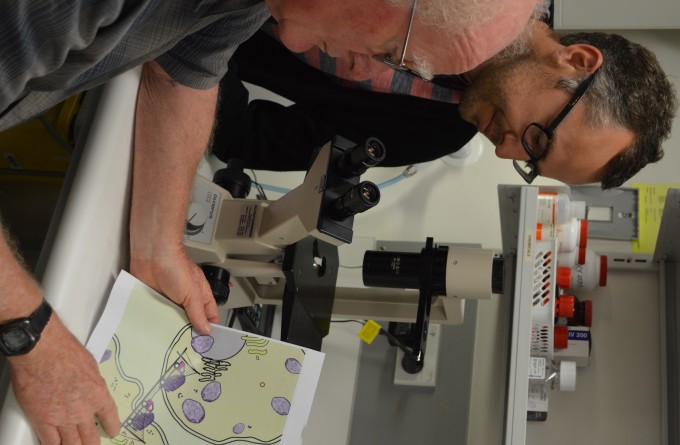19 January 2021
Multiple sclerosis (MS) is a neurodegenerative disease characterised by chronic inflammation in the brain which causes progressive damage to neural cells resulting in physical and cognitive disability. While MS symptoms can be managed by controlling this inflammation, to date there are limited options for the repair and recovery of these damaged neurons.
However, a recent publication by Malaghan Institute MS programme leader Professor Anne La Flamme, Victoria University of Wellington Associate Professor Bronwyn Kivell, and University of Kentucky Professor Thomas Prisinzano has shown that the drug nalfurafine has the potential to not only slow the accumulation of disability, but also to restore function in experimental models of MS.

The paper ‘Nalfurafine reduces neuroinflammation and drives remyelination in models of CNS demyelinating disease,’ was recently published in Clinical & Translational Immunology and outlines how this drug – already in use – has the potential to be repurposed for treating MS.
Nalfurafine has been used clinically for years in treating a non-MS condition and has been shown to be safe and well-tolerated in patients. Additionally, the researchers’ findings show its MS-modifying effects are superior to another similar compound, which activates the same target but cannot be used clinically because of its poor side-effect profile.
Prof La Flamme, Assoc. Prof Kivell, and Prof Prisinzano last year co-founded a spin-out company, Rekover Therapeutics, with investment from the New Zealand Innovation Booster Fund, a partnership between the University’s commercialisation arm, Wellington UniVentures, and Booster Financial Services.
“We are now raising funds to enable a clinical trial of nalfurafine in people with MS to build on this significant step forward in our understanding of its potential,” says Prof La Flamme.
Funding for the nalfurafine research came from the Ministry of Business, Innovation and Employment, the Neurological Foundation of New Zealand, the Health Research Council of New Zealand, the Great New Zealand Trek, the Kate Parsonson Scholarship, the Wellington Medical Research Foundation, and the National Institute on Drug Abuse.
The research findings are published in Clinical & Translational Immunology.



